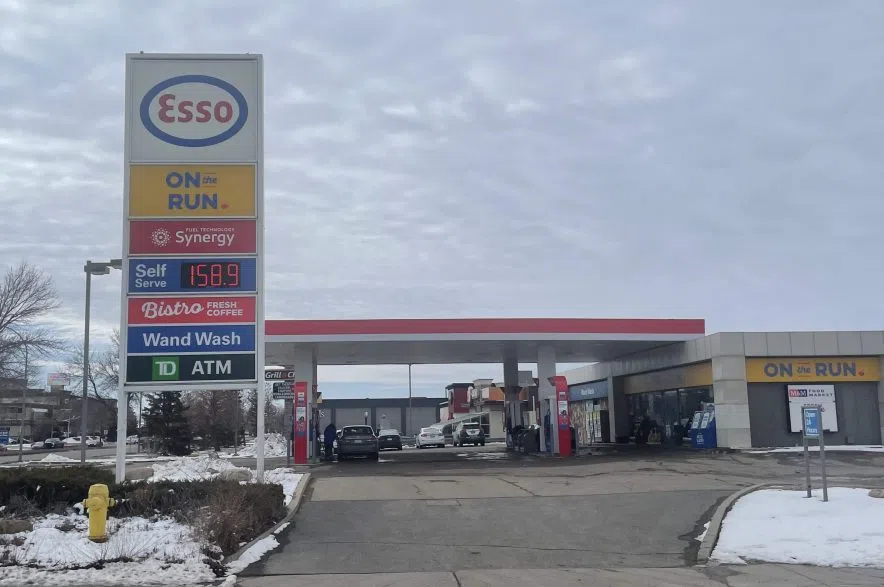People in Saskatchewan are facing more pressure at the pumps after the federal carbon tax increase hiked gas prices by three cents per litre.
On Monday, the federal carbon tax went up from $65 per tonne to $80 per tonne. In Regina, gas prices rose to $1.589 per litre at most stations.
While neighbouring provinces opted to lower their gas taxes, the Saskatchewan government chose to hold its gas tax steady at 15 cents per litre.
Eric Boyle is moving across the country because cost-of-living expenses are getting too high. He’s moving from Ottawa to Calgary with his girlfriend and was passing through Regina on Monday morning on his way there.
“(It’s) obviously not good,” he said. “Gas is already expensive as is, and it should not be increasing any more than it is.”
Since he got his licence, he said it now costs double to fill up his vehicle.
“It’s getting a little ridiculous, so it would be nice to go back down,” he said.
Hernaline Garcia said she’s seeing prices go up in every area of her budget.
“It hurts, because our salary doesn’t increase,” she said.
She said she’s always looking for cheaper options to fill up, like going to Costco.
This latest increase will dig into her grocery budget.
“Because I need gas to go to work or go to school, I lessen my budget on food,” she said.
Sugam Garg had some strong words after seeing the amount he paid for gas.
“This carbon tax is bull****,” he said.
Garg said he has seen 50 cents per litre added onto his receipt in the past three years.
Politicians received an increase in salaries on Monday. All Members of Parliament are making a base salary of $203,000 annually.
Saskatchewan MLAs are also seeing their salaries increase by three per cent. Last year, a salary cap was introduced when MLAs refused to take a nearly seven per cent raise due to inflation.
Those salary increases are something that a man named Brenton was not smiling about.
“Many people can’t even buy food,” he said. “So (politicians) shouldn’t take a raise.”
Grocery prices also affected
Not only is it getting more expensive at the pumps, but people could see food prices go up as well.
The carbon tax has an indirect effect when it comes to things like clothing or food. Companies that are forced to pay the tax will increase the cost of their products in order to continue to make a profit.
Statistics Canada recently estimated that carbon pricing has increased the price of the food by about 0.3 per cent, which does not account for Monday’s most recent increase.
Sylvain Charlebois is a Canadian researcher and professor in food distribution who spoke on the Roy Green Show on the weekend. Charlebois said Canada’s population is increasing, yet he and his team have seen a decrease in the amount of money being spent at the grocery store.
“Here’s the paradox: Our population increased by more than three per cent last year, however our economy barely moved, and that’s always a bad sign,” said Charlebois.
“If you’re in the food business, this is just bad news. If you have more stomachs to feed, that is typically good news, but if those stomachs have less money, that is bad news, so you’re basically looking at a trading-down market.”
He said that due to the high cost of living, people are paying far less than they should for food, which could affect their health.
“With Canada’s food price report, we calculated that the average Canadian should be spending $339 a month to have access to a healthy diet,” he said. “So $339 is the benchmark — that’s the target — so at $258 and change, you’re well below that. So it is highly likely that many people out there are making nutritional compromises.”











